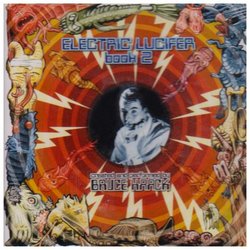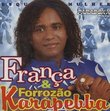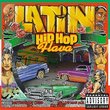| All Artists: Bruce Haack Title: Electric Lucifer Book 2 Members Wishing: 3 Total Copies: 0 Label: QDK Media Original Release Date: 1/1/1979 Re-Release Date: 7/24/2001 Genres: Dance & Electronic, Special Interest, New Age, Pop, Children's Music Styles: Electronica, Experimental Music, Dance Pop, Easy Listening, Sing-A-Longs Number of Discs: 1 SwapaCD Credits: 1 Other Editions: Electric Luficer Book V.2 UPCs: 801670950820, 4011760950821, 801670950813 |
Search - Bruce Haack :: Electric Lucifer Book 2
 | Bruce Haack Electric Lucifer Book 2 Genres: Dance & Electronic, Special Interest, New Age, Pop, Children's Music
German reissue for this forgotten visionary of electronic music who inspired Add N To X & Luke Vibert. The album was recorded in 1979 & is an ambitious concept album that deals with the devil's attempts to corrup... more » |
Larger Image |
CD DetailsSynopsis
Album Description German reissue for this forgotten visionary of electronic music who inspired Add N To X & Luke Vibert. The album was recorded in 1979 & is an ambitious concept album that deals with the devil's attempts to corrupt Jesus. For fans of Kraftwerk. Similar CDs
|
CD ReviewsThe Fabulous Sequel 12/13/2002 (5 out of 5 stars) "Bruce Haack is perhaps best known for his innovative and engaging (and extremely hard to find) electronic records for children made from the mid/late 60's through the 70's and even into the 80's. Current 'electronic' acts and collectors seek these albums out for their exciting use of homemade synthesizers (homemade because it was difficult to find much else in the mid 60's), all built by Bruce himself to enhance his and his musical cohorts' (dance instructor Esther Nelson, pianist Praxiteles Pandel and numerous children) fun and instructional songs in which the children lucky enough to hear them were invited to participate, learn, dance and sing. Many of the songs on these albums gave hints of Bruce's intellectual side, but it was his one major label release, The Electric Lucifer, put out by Columbia in 1970 (all other albums were released on Bruce and friends' own label, Dimension 5), that better showed just what Bruce was capable of: a groundbreaking mixture of contemporary rock, futuristic electronic sounds, and high-concept philosophic poetry. To quote Bruce from the liner notes of that album, 'I have unblocked a few media -- both philosophical and technical -- this is a good age of unblocking.' Musically, it was sort of a blend of the Moody Blues and Kraftwerk, four years before the latter would even begin to create the sounds for which they would best be remembered. The album explored the war between Heaven and Hell, with Earth being caught in the middle, and asserted that even Lucifer could be forgiven if only there was enough love in the world. This may have been too much for the mainstream to handle, unsurprisingly, so Bruce continued recording and releasing great albums on Dimension 5. In 1979, however, he would revisit his earlier hallowed ground and record The Electric Lucifer Book 2, which remained unreleased in Bruce's lifetime (he died in 1988), but now, finally, the rest of the world will be able to hear the fabulous sequel, as Bruce intended it to be heard. The context of the sequel is one in which Satan, fancying himself a 'mean ole devil,' tries to tempt a young Jesus by telling him about all the hurt and betrayals he will go through in life before his dramatic death. There are tender moments, funny moments, and frightening moments, but all moments end up catchy or moving or both. The album is no more 'religious' than works by Dante or Milton; Bruce merely uses well-known mythologies and icons to explore his own ideas about a universe that is bigger than anything anyone could say about it -- a universe made smaller by words themselves. And behind the ideas is the best damn electronic album you never heard! While Book One involved 'professional' singers and friends being brought in to sing along with Bruce's homemade electronic voice, which he called 'Farad,' Book 2 is purely Bruce. The entire album is sung using his somehow very moving robot/vocoder vocals. The music is more Kraftwerk this time than Moody Blues -- imagine that the Residents made an album about works by Dante or Milton, and then for some reason had Kraftwerk re-record the whole thing and you will begin to describe the wondrously strange beauty that dominates this album. Bruce was always somewhat prophetic in his works and in predictions to friends (he once described a future age in which all music would be shared by everyone -- though who could have predicted Metallica), and the highly insightful lyrics on this album will give plenty of philosophic fodder to be discussed 'round the ole jukebox, while the music coming from it will set your soul a-tappin'." Psychodelic masterpiece WAY ahead of its day Kristie Horn | Portland, OR USA | 08/09/2008 (5 out of 5 stars) "Electric Lucifer Book 2 may take some getting used to in the modern age of cheap, easy to make, digital music... some may find it too "cheesy" sounding, with its many beeps, boops, and repeated use of an early vocoder. Many complain that it sounds like "early MIDI", which speaks to the fact that most dont know anything about Bruce Haack. Afterall, most of his music predates MIDI by two decades. Lat it be said now that Electric Lucufer Book 2 was made in 1978... MIDI did not arrive until 1983. I would say anyone who finds this album cheesy hasnt put it in proper historical perspective.
Bruce Haack was making electic music decades before it was mainstream. He made almost ALL of his instruments himself, using simple electrodes, homemade circuits, and a welder. In his especially brilliant Electric Lucifer series, you can really feel the result of Haack's experimentation with psychodelic drugs (which ultimately led to him being abandoned by the entertainment industry). The result, peaking in Book 2, was a darkly themed series of music, about the battle between Good and Evil. This album is a must have for any serious collector interested in musical innovation. Just listen to the first song "Mean ol' Devil" and you too will officially become a Haack-Fan!" |

 Track Listings (9) - Disc #1
Track Listings (9) - Disc #1

